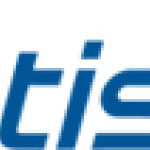- 産業: Telecommunications
- Number of terms: 29235
- Number of blossaries: 0
- Company Profile:
ATIS is the leading technical planning and standards development organization committed to the rapid development of global, market-driven standards for the information, entertainment and communications industry.
In communications, the coded representation of the source or destination of a message. 2. In data processing, a character or group of characters that identifies a register, a particular part of storage, or some other data source or destination. 3. To assign to a device or item of data a label to identify its location. 4. The part of a selection signal that indicates the destination of a call. 5. To refer to a device or data item by its address.
Industry:Telecommunications
In communications, that part of a system from which messages are considered to originate.
Industry:Telecommunications
In communications, computer, and data processing systems, an address that directly identifies a storage location without the use of an intermediate reference, e.g., a base address or a relative address.
Industry:Telecommunications
In communications, computer, and data processing systems, a program that (a) allows an operator to call up different parts of the program package and (b) usually allows functions to be selected from menus in the same way as other commands. Note: An example of an access system is the program supplied with a common spreadsheet program that (a) allows the computer to shift between the spreadsheet program and a graph-printing facility and (b) provides access to various support functions.
Industry:Telecommunications
In communications, a structure with terminations for connecting the permanent wiring of a facility in such a manner that interconnection by cross-connections may readily be made.
Industry:Telecommunications
In communications, any demand to set up a connection. 2. A unit of traffic measurement. 3. The actions performed by a call originator. 4. The operations required to establish, maintain, and release a connection. 5. To use a connection between two stations. 6. The action of bringing a computer program, a routine, or a subroutine into effect, usually by specifying the entry conditions and the entry point. 7. A customer attempt for which complete address information (e.g., 0-, 911, or 10 digits) is provided to the serving dial tone office.
Industry:Telecommunications
In communications, a designation assigned to a message by the originator to indicate to communications personnel the relative order of handling and to the addressee the order in which the message is to be noted. Note: The descending order of precedence for military messages is FLASH, IMMEDIATE, PRIORITY, and ROUTINE.
Industry:Telecommunications
In communications, a circuit available for use. 2. In electrical engineering, a circuit that contains an essentially infinite impedance. Note: An open circuit may be intentional, as in a switch, or may constitute a fault, as in a severed cable.
Industry:Telecommunications
In communications systems, to obscure, hide, or otherwise prevent information from being derived from a signal. Note 1: Masking is usually the result of interaction with another signal, such as noise, static, jamming, or other forms of interference. Note 2: Masking is not synonymous with erasing or deleting. 2. In computing and data processing systems, a pattern of bits that can be used to retain or suppress segments of another pattern of bits.
Industry:Telecommunications
In communications systems, the process of transposing, in frequency, a pregroup of channels, such as telephone or data channels, in such a manner that they may be formed into a standard group, such as a CCITT (an ITU-T) basic group, by frequency-division multiplexing.
Industry:Telecommunications
